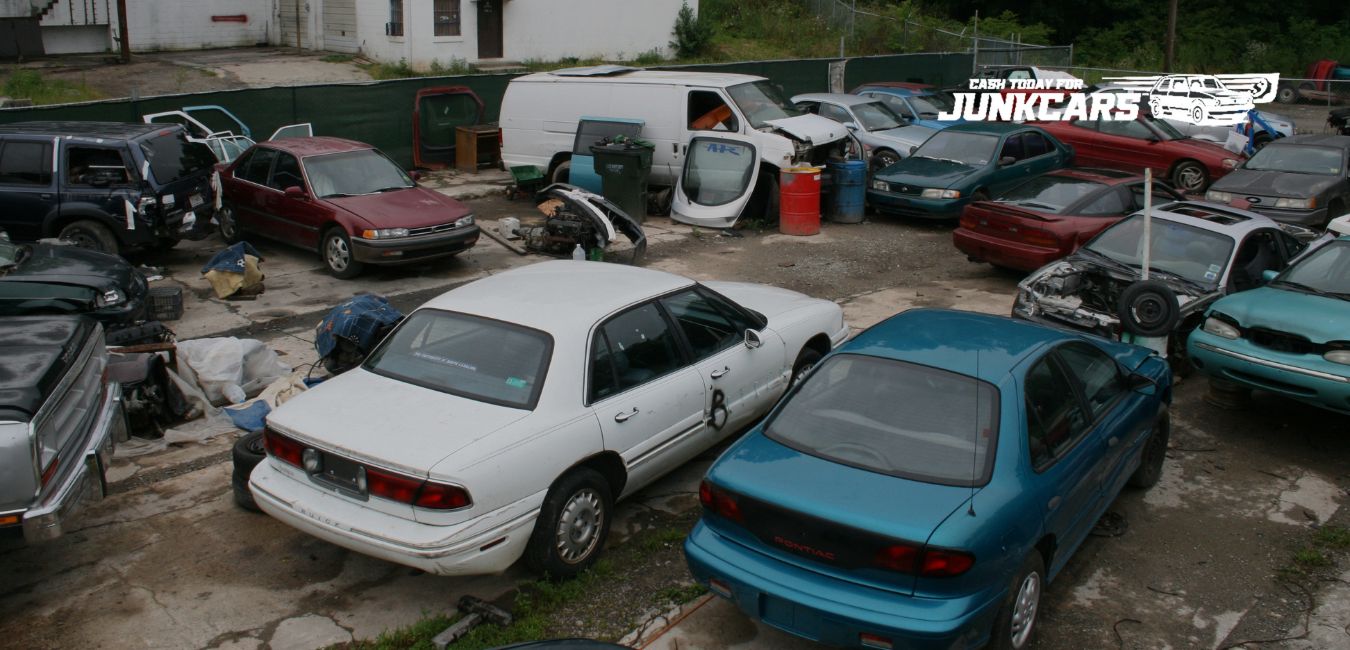Ever gazed at the old beaters parked in your backyard and wondered, “Just how many junk cars can you have on your property?” Well, this isn’t just about aesthetics, it’s also about laws. If you’re curious to know whether your automobile affection has crossed the line, or if you’re planning to start your own ‘rusty museum’, hold your gear! There are local rules and regulations that might limit your enthusiasm.
Contents
Local Laws And Regulations
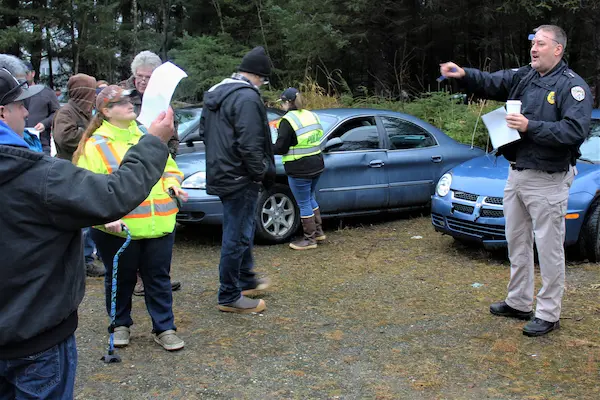
Laws and regulations can vary significantly from one locality to another, so it’s important to specify the jurisdiction you are referring to.
Overview Of Laws And Regulations Regarding Junk Cars
When it comes to storing junk cars, local laws and regulations can be a mixed bag. They range from zoning laws and property standards to environmental and safety regulations.
These rules are usually put in place to maintain the beauty and integrity of neighborhoods and communities, ensuring they don’t morph into makeshift junkyards. They may dictate not only the number of inoperable vehicles you can have but also where and how you store them.
How To Find Out About Local Laws And Regulations
The question, “How many junk cars can you have on your property” is best answered by your local city or county office. The rules vary greatly depending on your location.
You can usually find this information on your local government’s website or by calling the appropriate municipal office, such as the Department of Code Enforcement or Zoning Department. If you’re part of a homeowners association, they may also have rules about junk vehicles.
Penalties For Violating Local Laws And Regulations
Ignoring these laws can lead to hefty fines or even legal action. Penalties vary but may include daily fines until the violation is rectified, impoundment of vehicles, or court orders for clean-up.
In addition to financial penalties, flagrant or repeated violations can result in criminal charges. Knowing and adhering to your local laws and regulations can save you from a lot of trouble and expense.
Homeowner Association (HOA) Rules

Living in a neighborhood governed by a Homeowner Association (HOA) adds an extra layer of regulations to consider when it comes to junk cars on your property.
How HOA Rules Can Affect Junk Car Storage
HOA rules regarding junk cars can be more stringent than local laws. They aim to maintain the overall appearance and property values of the community.
These rules can dictate the number of junk cars allowed, their storage locations, and even appearance standards. Violating HOA rules may result in fines, warnings, or other disciplinary actions decided by the association.
Common HOA Rules Related To Junk Cars
HOAs commonly have specific rules regarding junk cars, including restrictions on visible storage, requirements for cars to be operable and registered, or limitations on the total number of non-operational vehicles allowed.
Some HOAs might even prohibit junk cars altogether. It’s essential to familiarize yourself with these rules to avoid potential conflicts and penalties.
How To Find Out About HOA Rules And Regulations
To access and understand HOA rules concerning junk cars, refer to your community’s governing documents, such as the Covenants, Conditions, and Restrictions (CC&Rs) or bylaws.
These documents outline the regulations and guidelines imposed by the HOA. You can usually obtain a copy from your HOA management company or by contacting the HOA board directly.
Understanding these rules ensures compliance and a harmonious living environment within your community.
Environmental Concerns
When it comes to junk cars, it’s not just about adhering to laws and regulations; there are also important environmental considerations to keep in mind.
Hazards Associated With Junk Cars
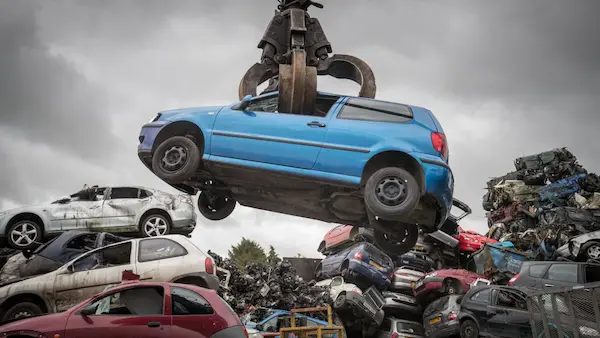
Junk cars pose various environmental hazards. They can leak fluids such as oil, coolant, and gasoline, which can contaminate soil and water sources, harming local ecosystems.
Additionally, the accumulation of rust and corrosion can release heavy metals and pollutants into the environment. These substances can have detrimental effects on both human health and the surrounding flora and fauna.
Safe And Responsible Disposal Methods
Proper disposal of junk cars is crucial to minimize environmental harm. One option is to sell or donate the vehicle to a scrapyard or salvage yard, where it can be recycled or dismantled safely.
These facilities have the expertise to handle hazardous materials and fluids in an environmentally friendly manner. Another option is to contact a licensed auto recycler or local government agency that offers car recycling programs.
Tips For Avoiding Environmental Hazards When Storing Junk Cars
If you’re temporarily storing junk cars on your property, there are steps you can take to mitigate environmental risks. Ensure all fluids, such as oil, coolant, and fuel, are properly drained and disposed of according to local regulations.
Store the vehicles on impervious surfaces, such as concrete or asphalt, to prevent contaminants from seeping into the ground. Regularly inspect the vehicles for leaks and promptly address any issues to prevent environmental damage.
Options For Dealing With Junk Cars
When faced with junk cars on your property, it’s essential to explore the various options available for their disposal. By choosing legal and responsible methods, you can not only free up space but also contribute to environmental sustainability.
Legal And Responsible Disposal Methods
To dispose of junk cars legally and responsibly, consider contacting local auto salvage yards, scrap yards, or recycling centers. These facilities have the expertise to handle the dismantling, recycling, and proper disposal of vehicles, adhering to environmental regulations.
They will often provide documentation to ensure the transfer of ownership and proper disposal of hazardous materials.
Selling, Donating, Or Recycling Options
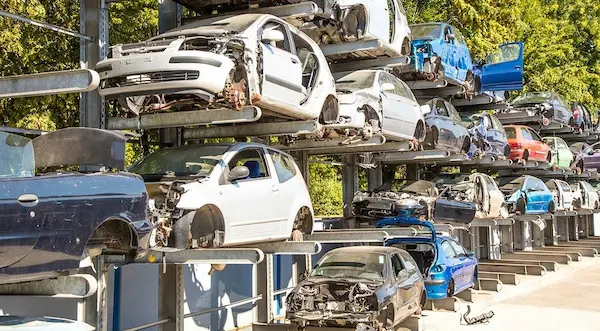
If the junk car is still operable or has salvageable parts, selling it to a private buyer or dealership can be a viable option. Online marketplaces or classified ads can help connect you with potential buyers.
Additionally, there are charitable organizations and nonprofits that accept vehicle donations, allowing you to contribute to a good cause while getting rid of junk cars. Recycling options are also available, where the vehicle is dismantled, and the materials are reused or repurposed.
Finding A Reputable Junk Car Buyer Or Recycler
To ensure a smooth and trustworthy transaction, it’s crucial to find a reputable junk car buyer or recycler. Research local businesses read reviews, and ask for recommendations from friends, family, or auto repair shops.
Verify that the buyer or recycler is licensed, follows environmental regulations, and provides fair pricing. Obtaining multiple quotes can help you compare offers and make an informed decision.
FAQs
1. What Is The Best Way To Dispose Of A Junk Car?
The best way to dispose of a junk car is by contacting local auto salvage yards, scrap yards, or recycling centers. These facilities have the expertise to handle dismantling, recycling, and proper disposal of the vehicle. They ensure compliance with environmental regulations and provide the necessary documentation for the transfer of ownership and disposal of hazardous materials.
2. How Much Can I Expect To Get For My Junk Car?
The amount you can expect to get for your junk car varies based on several factors. These include the condition of the vehicle, its make and model, market demand for used parts, and current scrap metal prices. While specific prices differ, you can typically expect to receive payment based on the weight of the vehicle and the current market value of scrap metal.
3. Can I Get In Trouble For Keeping A Junk Car On My Property?
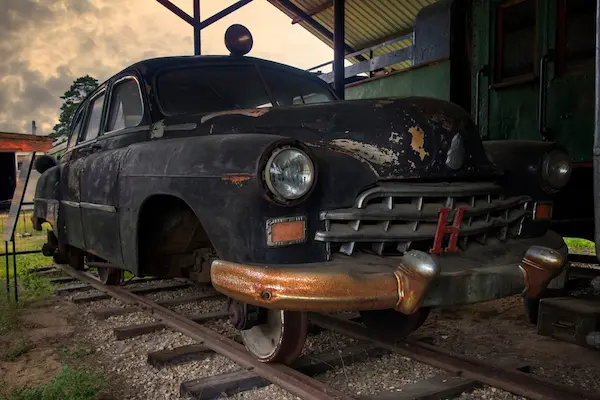
Yes, you can potentially get in trouble for keeping a junk car on your property, depending on local laws and regulations. Many areas have zoning laws or property standards that restrict the number of unregistered or non-working vehicles you can store. Violating these regulations can result in penalties such as fines, impoundment of vehicles, or legal action.
How Many Junk Cars Can You Have On Your Property: Conclusion
When it comes to the question of “How many junk cars can you have on your property,” it is evident that the answer is contingent upon local laws, regulations, and potential homeowner association rules.
It is crucial to be well-informed and compliant with these guidelines to ensure a harmonious living environment and avoid any legal consequences.
These regulations aim to maintain aesthetics, prevent safety hazards, and protect the environment. By researching and understanding the specific laws in your area, you can responsibly manage your junk cars.
Exploring options for legal disposals, such as selling, donating, or recycling, not only helps you adhere to regulations but also contributes to environmental sustainability.


